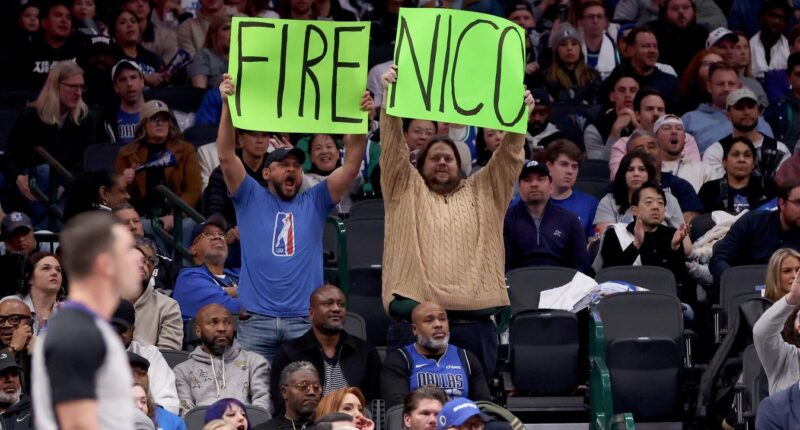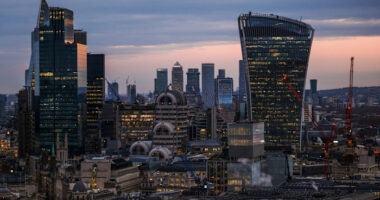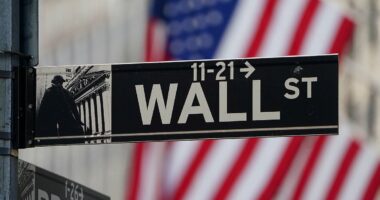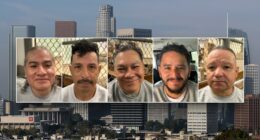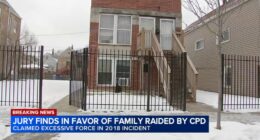Share this @internewscast.com
DALLAS, TEXAS – FEBRUARY 10: Dallas Mavericks fans hold up a sign referring to Mavs general manager Nico Harrison during the game against the Sacramento Kings at American Airlines Center on February 10, 2025 in Dallas, Texas. NOTE TO USER: User expressly acknowledges and agrees that, by downloading and or using this photograph, User is consenting to the terms and conditions of the Getty Images License Agreement. (Photo by Tim Heitman/Getty Images)
The departure of Harrison was made official when Mavericks owner Patrick Dumont released a public letter stating, “When outcomes fall short of expectations, it’s my duty to take action. I’ve chosen to part ways with General Manager Nico Harrison.”
In his statement, Dumont made no mention of the controversial Doncic trade and did not acknowledge his involvement in that decision. Additionally, he offered no apology to the team’s supporters.
Dumont acknowledged, “I understand the significant impact these recent months have had,” but his words were not accompanied by any steps to address fan discontent. His message expressed gratitude to the fans for “holding us accountable,” and emphasized that the Mavericks are committed to “returning to winning basketball.”
Winning basketball?
Dallas seems a long distance from that goal.
Since the 2024 trade of Doncic, the franchise has been plagued by the repercussions of letting go of such a transformative player. The organization gambled on bringing in the 32-year-old, injury-prone Anthony Davis, a move that has led Mavericks fans to consistently call for Nico’s dismissal.
Ever since Dallas traded Doncic in 2024 the franchise has been haunted by that decision. And rightly so. The organization sent a generational player out of Dallas and bet on 32-year-old injury-prone big man in Anthony Davis. Mavericks fans have been chanting Fire Nico everywhere since it happened.
After landing the No.1 draft pick in Cooper Flagg, Harrison likely hoped the Mavericks would start the season with a bang. Instead, they’ve flopped. The Mavericks are 3-9. Kyrie Irving is out with a torn ACL and may not return this year. Anthony Davis—Doncic’s replacement—has appeared in four games and strained his calf six minutes into his fifth outing. And rookie next-gen-star Flagg has shown flashes of flair and instinct but has been shoehorned into the wrong role.
Meanwhile, Doncic is surging: He’s in the best shape of his life, averaging 37.1 points in seven games with the 8-4 Lakers who are missing LeBron, and ESPN lists him at +300 to win MVP, behind Shai Gilgeous-Alexander (+240).
By firing Harrison Dallas now feels more untethered than it did after the Doncic trade. Staying the course – whether fans agreed with Harrison’s strategy or not – might have appeared to offer some direction. But the sudden firing rips apart what little cohesion ownership and Harrison had left. It also reveals a greater catastrophe: growing doubts that anyone in charge actually knows what comes next.
Mavericks Fans Stick Together
The “Fire Nico” movement became a support group for grieving Mavericks fans. At every home game since the Doncic trade, Fire Nico chants rang out through the arena; they organized pre-game protests, crowd-funded billboards, made Fire Nico signs, made pro Luka tee shirts, waved Fire Nico flags, all to vent their frustration. Some got ejected from the stadium.
“This is the kind of thing that decimates fandoms,” said Kirk Henderson, editor of Mavs Moneyball and host of Pod Maverick who spoke to Mavericks fans on his show when the Doncic news broke.
“I believe Nico Harrison was allowed to operate with impunity because the team ultimately doesn’t matter that much to the owners,” he said.
Jared Latigo grew up in Texas and lives an hour outside of Dallas hasn’t watched a single game since the trade and will no longer attend Mavericks games.
“We wanted the next ring to be Luka. That’s what people on the outside of Mavs culture don’t really understand. The true sense of loss the fanbase is feeling and you see it all around Dallas even now. You see it even at the games now. It’s just not the same.”
Two weeks ago Dirk Nowitzki sat down with Doncic for a three-minute chat on NBA Prime. It was a nothingburger interview. Just two friends catching up. But here were two generational NBA players that once had strong ties to the Dallas Mavericks. Dirk is now estranged from the club. And Doncic is a Laker.
“As much as I value the community that I’ve found in covering the Mavs, this whole thing is just a reminder that sports really doesn’t love you as a person back,” Henderson said. “It’s a business for the people who are involved in it. It’s a passion for me. And that sometimes feels like just grossly unfair.”
I reached out to the Mavericks to learn more about how they interpret and manage brand pressure that comes from fan expression, whether or not they have changed fan-engagement strategy since the Fire Nico chants started, and whether or not they considered setting up any community events to reconnect with fans. They did not respond.
What The Mavericks Must Learn From The Nico Harrison Era
Former Giants head coach Bill Parcells used to say: “You are what your record says you are.” Communications and PR strategist Joe Favorito brought it up as we started to talk about how it went so wrong for the Mavericks and what lessons they can take into a rebuild from here.
Favorito, who’s spent 35 years working in sports communications, with stints at the New York Knicks and Philadelphia 76ers, said the one of the most challenging things for any organization is to balance patience and what’s best for the club versus the outside noise.
“You can’t react to everything people say, because they are making emotional decisions versus business decisions,” he said. “And you can’t make emotional decisions everyday because you’d be caught up in this vortex of inertia that no business can sustain.”
Last year at MetLife Stadium, New York Giants fans organized a plane to do a fly-by with a banner that read “Plz fix this dumpster fire.” Favorito said that fans try to create their own voice and do things they feel is important to them.
Part of the frustration from Mavericks fans was a lack of transparency around what really motivated the team to move Doncic. Director, Sports Business Program and Professor of Practice in Sports Business at WashU, Dr. Patrick Rishe says what the Mavericks didn’t also address was the fan backlash from a PR standpoint.
Rishe believes that the Mavericks should have had a fireside chat with some of the team’s leadership and ownership where people could have aired their grievances so at least they’d feel like they are being heard, listened to and spoken to on their level. The Mavericks could have learned from it and used that information to build better fan experiences in the community, on game days, in the concourse, outside the arena.
“I think that’s a lesson for any organization whether it’s business or sports business,” Rishe said. “It all comes back to engagement. Customer service is a contact support. You got to get your hands dirty.”
Building Trust Is The Rebuild
Philadelphia navigated through Trust the process under general manager Sam Hinkie when the organization decided to tank its way out of NBA purgatory. The Nets created fan ecosystems around the arena – wine clubs, restaurants, and hotels – in the wake of star player departures. And Toronto Raptors president Masai Ujiri sold the idea of risk versus reward in the DeMar DeRozan and Kawhi Leonard trade.
The Mavericks haven’t been able to offer any of those things. They pulled the trigger on a stunning move then went silent on their fanbase.
In some steadying moves, this week the Mavericks named Michael Finley and Matt Riccardi as co-interim general managers to oversee basketball operations. The Mavericks said a “comprehensive search will begin for a permanent replacement.”
But in their world, nothing’s off the table. Trade Davis and Irving while they still have value? Maybe. Fire Head Coach Jason Kidd? Unlikely with a transitioning team. Sell the team? It’s possible in this market: this year already the Lakers sold for $10 billion and Boston fetched $6.1 billion.
For Harrison, and those Fire Nico! chants that lingered for months? They were never really about him. It was about a franchise that stopped listening to its fans.
What happens next? Only the Dallas Mavericks can answer that.
The fans that do continue to go to games say the arena is rarely sold out. And even with Cooper Flagg on the roster, things aren’t magically going to get better. Whatever it is they do from here the path forward can’t be about chasing titles. If they are serious about winning basketball games – like Dumont alluded to in his open letter – the Mavericks must tackle the hardest thing to do in sport: rebuild trust. And that is going to take time.
